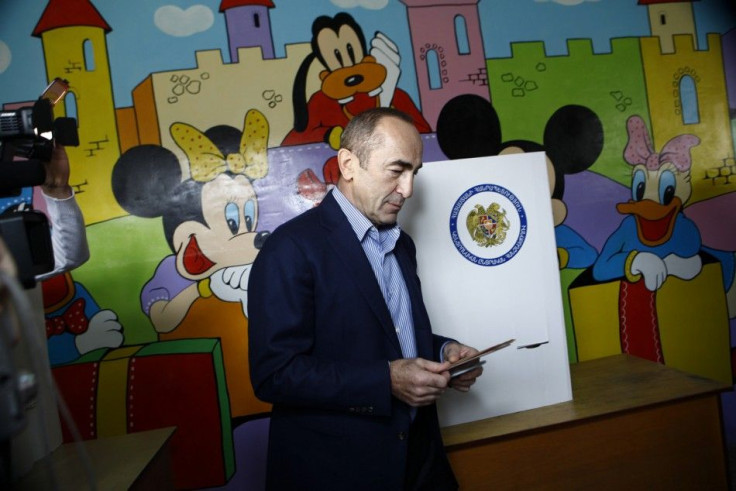Armenia?s Ruling Party Wins Re-Election; Serbia Faces Presidential Run-Off

Obscured by the monumental elections in France and Greece, two other European nations -- Armenia and Serbia -- also held important polls over the weekend.
The ruling Republican Party of the former Soviet republic of Armenia gained a majority of seats in parliamentary elections held on Sunday. Armenian president Serge Sarkisian, who enjoys good relations with both Russia and the West, saw his party gain about 46 percent of votes cast, while former coalition partner, the Prosperous Armenia party, finished second with about 31 percent of the tally.
The principal opposition party, The Armenian National Congress, led by former President Levon Ter-Petrosyan, is expected to receive at least 7 percent of the vote, just enough to gain some seats in parliament.
Armenian voters are most concerned with the economy which has been hammered by a lengthy trade blockade imposed by Turley and Azerbaijan in connection with the conflict over the Nagorno-Karabakh region; as well as by the deleterious effects of the 2008-2009 global financial crisis.
On Sunday, about 150 people were injured when gas-filled balloons exploded during a rally for the Republican Party in the capital city of Yerevan. Initially thought to be a politically-inspired attack, the incident was later determined to be an accident.
Still, the 2012 election was thankfully free of the violence that accompanied the 2008 poll – ten people were killed then during clashes between the police and opposition demonstrators.
Foreign monitors said the election was largely free and fair, although there were reportedly pockets of questionable conduct, including acts of voter fraud.
The Organisation for Security and Co-operation in Europe (OSCE) praised the poll as open and peaceful,” but added that there are concerns about the general lack of confidence in the integrity of the [electoral] process amongst political parties and the general public.”
Baroness Nicholson of the Council of Europe warned that the [Armenian] authorities must address this unacceptable behavior before the presidential election next year.”
Meanwhile, an election in Serbia (part of the former Yugoslavia) will lead to a presidential run-off on May 20 between incumbent Boris Tadic of the Democratic Party (DS) and Tomislav Nikolic of Serbian Progressive Party (SNS).
Tadic received about 26 percent of the vote, with Nikolic getting about 25 percent. However, as in France, the Socialists of Serbia polled surprisingly well, grabbing 16 percent. As a result, the Socialists may be in line to participate in a collation government. The leader of the party, Ivica Dacic, could become the next Prime Minister.
We have risen from the ashes,” Dacic said.
The Socialists have been out of power for 12 years since the collapse of Slobodan Milosevic’s government. Milosevic later faced war crimes charges in The Hague in connection with the wars of the 1990s.
The European Union granted Serbia EU candidate status in March, but Serbians are likely more concerned with the country’s very high jobless rate (24 percent) and a huge foreign debt of some 24 billion euros ($31.5 billion).
© Copyright IBTimes 2024. All rights reserved.











